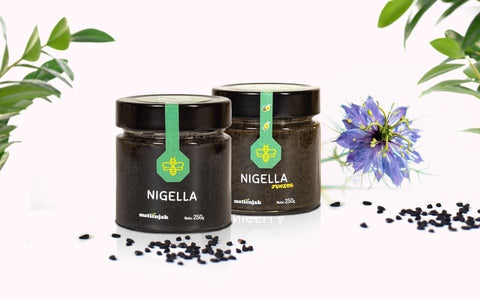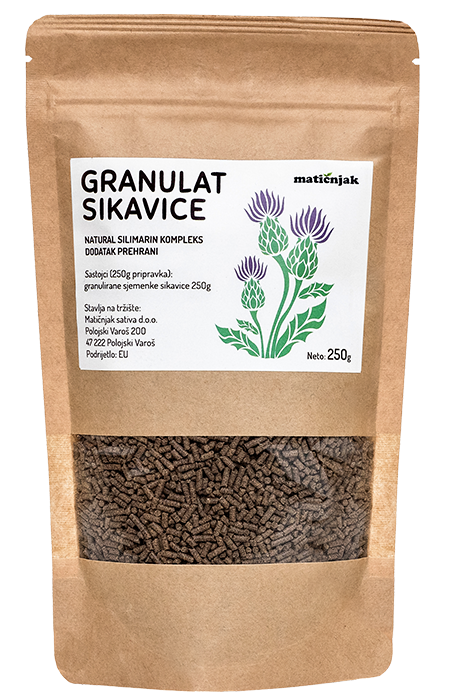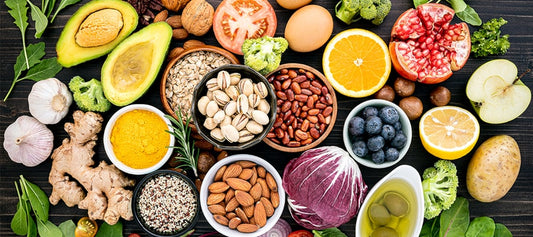Watery eyes, weakness, cough, blocked nose, redness, these are all symptoms that occur in people who are allergic. They cause discomfort and in a very irritating way, prevent an individual from carrying out his duties throughout the day without obstacles. Spring often brings a kind of restlessness to the everyday life of many who suffer from these symptoms, but they can be significantly reduced, and in this case, prevention is half of health.
Allergy season is increasing and the number of coronavirus patients is moving in the wrong direction, and many times we are confused by the symptoms because unfortunately they overlap this year. Allergy symptoms can mask the initial symptoms of the corona virus. In the rich botanical world, there is one valuable phytotherapy plant that is the archetype of a true fighter against allergies and viruses, and which plant it is exactly, read below in the text.
Loss of smell, corona or allergies?
The most common concern is the loss of smell. In case of allergies, the loss of smell is the result of air being blocked from reaching the olfactory receptors in the nose, literally, the nose is blocked. If the nose is not blocked and there is a loss of smell, then it is a corona virus. Allergy sufferers usually have symptoms centered on the nose, eyes and throat. If someone is experiencing fever, body aches and weakness, it is more likely that they could have COVID-19.
Seasonal allergies do not usually cause shortness of breath unless you have a more severe respiratory condition that can be triggered by pollen exposure, such as asthma.
Natural intervention for allergies, viruses and bacteria
There are small but powerful seeds that contain great power and are the pure power of nature, and the range of action of these seeds is incredible. It is about black cumin seeds that have a medicinal effect on the overall state of the organism. The main components of black cumin have an important role in the prevention and fight against microbes, allergies, inflammation, liver disorders and diabetes, autoimmune and even malignant diseases.
Black cumin as a natural ally in the control of allergies, viral infections or regulation of immunity can be found as a cold-pressed oil, but also in other forms, for example in honey.

Quality of black seed oil
Medical research studies the use of black cumin seeds ( Nigella sativa ) in allergies and the results show that within two weeks of using black cumin oil, it reduces the presence of nasal congestion and itching and sneezing attacks, which makes it a promising botanical remedy for allergies. The anti-allergic effect of pure, virgin Egyptian black cumin is well established, but it is important to know how to choose a quality oil. It must be cold-pressed, in small batches, stored in dark glass bottles, which stabilizes it in a gentle, natural way. Black cumin seeds contain biologically active essential oil, and thymoquinone is also the most important active substance of black cumin oil, the content of which determines the authenticity and quality of the oil and its pharmacological effect. In order for the level of thymoquinone to be at the level and provide a therapeutic effect on the body, the oil must be freshly pressed and the seeds must be of good quality. The special feature of cold-pressed oil is its immunomodulatory effect, which is a rarity in the plant world. Due to its immunomodulatory effect, it is often recommended for viral and bacterial infections and autoimmune diseases. Taking cold-pressed black cumin oil should start a couple of weeks before the first pollen arrives and during autumn and winter infections. Those who are late should start as soon as possible, and black cumin oil from Matičnjak's treasury is certainly a perfect choice

Black cumin in honey
Honey and seeds love each other, supporting joint action. Using black cumin seeds in honey cleans the respiratory tract , prevents the accumulation of mucus, enables better and deeper breathing and increases the activity of the defense system. Black cumin in honey is a common omen for regulating allergies and viral infections. Black cumin seeds dilate the bronchi , which reduces allergy symptoms , and the body slowly gets used to the flower powder that irritates it, even that of ragweed. This is how this mild and tasty honey becomes functional.
With black cumin seeds Nigella Junior is a great way to offer children black cumin, which normally has a strong and strong taste, and when it is in honey, it significantly improves its taste. It is even more important that long-term consumption of honey has an immunostimulating effect, prevents infection and is more effective than chemical cough syrups, especially for children's coughs.
ALLERGY package - free shipping + 10% discount
Black cumin and sweet wormwood
When we talk about viruses and bacteria, especially today when we are intensely surrounded by one such virus that has hit the whole world, a sure solution lies in the synergy of sweet wormwood and black cumin ¹ . Together, sweet wormwood and black cumin oil are extremely effective against viruses, bacteria, fungi and other pathogens² that threaten the proper functioning of our body. There are few phytotherapeutic plants that support and complement each other so well. Macerate of sweet wormwood in cold-pressed black cumin oil represents the synergy of two plants, which are strong immunomodulators³ and are therefore used in the fight against the most serious diseases⁴,⁵,⁶. Together, in Matičnjak's Macerat 14 , black cumin and sweet wormwood are definitely the best choice during the season of viral infections, but not only then. Its protection is comprehensive, measurable and harmless⁷,⁸,⁹ which was confirmed by scientists from German and American institutes this winter, investigating the effect of sweet wormwood on the body in terms of helping to fight viruses.
1.Khalife R., Hodroj M. H., Fakhoury R., Rizk S. Thymoquinone from nigella sativa seeds promotes the antitumor activity of noncytotoxic doses of topotecan in human colorectal cancer cells in vitro. Planta Medica.
2. Majeed A., Muhammad Z., Ahmad H., Hayat S.S.S., Inayat N., Siyyar S. Nigella sativa L.: uses in traditional and contemporary medicines–An overview. Acta Ecol. Sin. 2020
3. Goyal S.N., Prajapati C.P., Gore P.R., Patil C.R., Mahajan U.B., Sharma C., Talla S.P., Ojha S.K. Therapeutic potential and pharmaceutical development of thymoquinone: a multitargeted molecule of natural origin. Front. Pharmacol. 2017;8:656.
4. Ahmad A., Mishra R.K., Vyawahare A., Kumar A., Rehman M.U., Qamar W., Khan A.Q., Khan R. Thymoquinone (2-Isoprpyl-5-methyl-1, 4-benzoquinone) as a chemopreventive/anticancer agent: chemistry and biological effects. Saudi Pharm. J. 2019
5. Hossen M.J., Yang W.S., Kim D., Aravinthan A., Kim J.-.H., Cho J.Y. Thymoquinone: an IRAK1 inhibitor with in vivo and in vitro anti-inflammatory activities. Sci. Rep. 2017;7:1–12.
6. Aziz N., Son Y.-.J., Cho J.Y. Thymoquinone suppresses IRF-3-mediated expression of type I interferons via suppression of TBK1. Int. J. Mol. Sci. 2018;19:1355.
7. Glick M. “Could This Millennia-Old Remedy Become a Pharmaceutical Marvel?” Discover Magazine. Published online June 17, 2021.
8. Shen HH et al. “Cold-pressed Nigella sativa oil standardized to 3% thymoquinone potentiates omega-3 protection against obesity-induced oxidative stress, inflammation, and markers of insulin resistance accompanied with conversion of white to beige fat in mice.” Antioxidants (Basel), vol. 9, no. 6 (June 4, 2020): 489
9. Mukherjee M et al. “Autoimmune responses in severe asthma.” Allergy, Asthma, & Immunology Research, vol. 10, no. 5 (September 2018): 428-447
You can find the products in specialized health food stores and in all better pharmacies. More information here . For those who are more inclined to buy online, black cumin oil and all other products, search the Matičnjak webshop by clicking here , where you can find more detailed information about the products.
[Recommended blogs]
- Black cumin, honey and Arabian horses
- Scientists have proven the effectiveness of sweet wormwood against the coronavirus
- Five oils that would be good to take every day
- Functional honeys - a gift from nature
- Meet Lemon Balm and our story

Ivo Bačlija, herbalist, apitherapist
+Information and statements are for educational purposes and should not replace your doctor's advice.








